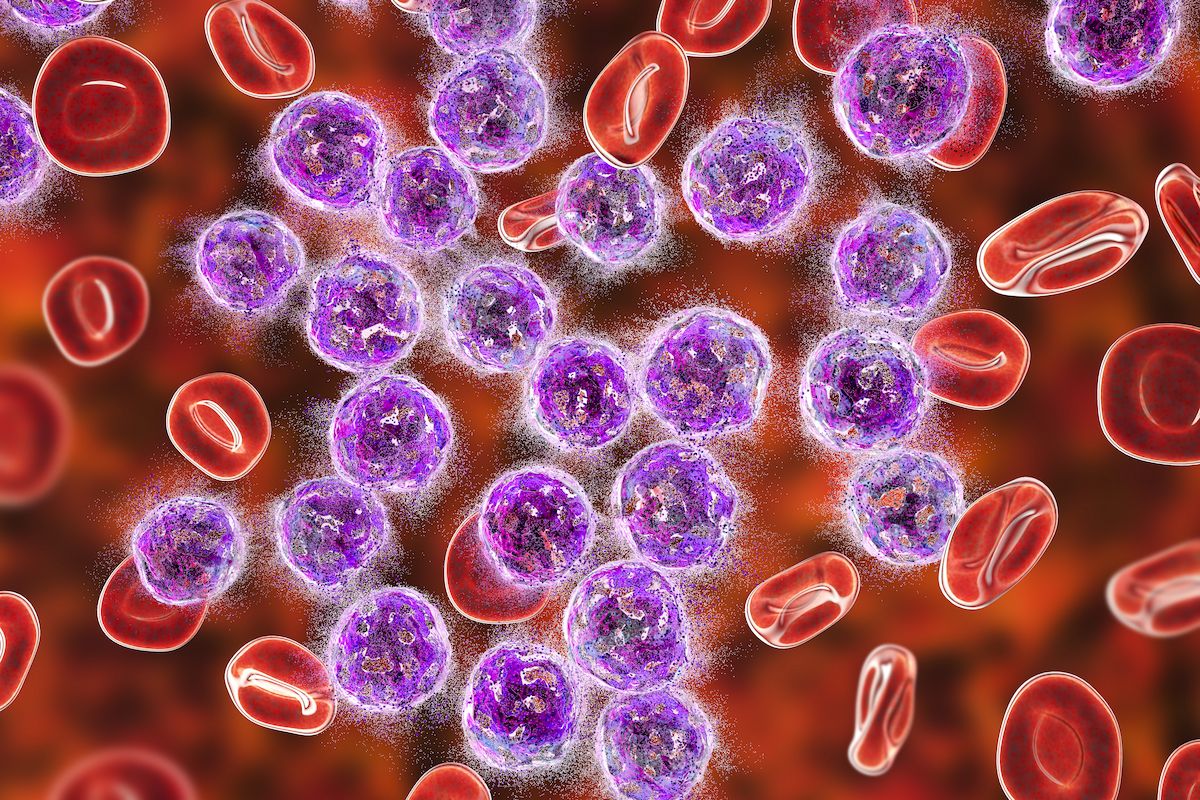
FDA Approves Revumenib for Relapsed/Refractory KMT2A-Translocated Acute Leukemia

The FDA has approved revumenib (Revuforj) for the treatment of patients with relapsed/refractory acute leukemia with a KMT2A translocation in adult and pediatric patients 1 year and older.
The FDA has approved revumenib (Revuforj) for the treatment of patients with relapsed/refractory acute leukemia harboring a KMT2A translocation in adult and pediatric patients 1 year and older.
The approval was based on results from a single-arm cohort of the open-label, multicenter AUGMENT-101 trial (SNDX-5613-0700; NCT04065399), which included 104 adult and pediatric patients who were at least 30 days old with relapsed/refractory KMT2A-translocated acute leukemia.
Findings showed that the complete remission (CR) plus CR with partial hematologic recovery (CRh) rate was 21.2% (95% CI, 13.8-30.3), and the median CR+CRh duration was 6.4 months (95% CI, 2.7–not estimable). The median time to CR or CRh was 1.9 months (range, 0.9-5.6) in the 22 patients who achieved a CR or CRh.
Additionally, among 83 patients who were dependent on red blood cell (RBC) and/or platelet transfusions at baseline, 14% became RBC-independent and platelet transfusion–independent during a 56-day post-baseline period. Of the 21 patients who were independent of both RBC and platelet transfusions at baseline, 48% of them remained transfusion independent during any 56-day post-baseline period.
In the trial, revumenib was administered until disease progression, unacceptable toxicity, failure to achieve morphological leukemia-free state by 4 cycles of treatment, or hematopoietic stem cell transplantation. Patients with an 11q23 partial tandem duplication were excluded from the trial.
The coprimary end points were CR plus CRh rate, the duration of CR plus CRh, and conversion from transfusion dependence to independence.
Regarding safety, the most common adverse effects occurring in at least 20% of patients included hemorrhage, nausea, increased phosphate, musculoskeletal pain, infection, increased aspartate aminotransferase, febrile neutropenia, increased alanine aminotransferase, increased intact parathyroid hormone, bacterial infection, diarrhea, differentiation syndrome, electrocardiogram QT prolonged, decreased phosphate, increased triglycerides, decreased potassium, decreased appetite, constipation, edema, viral infection, fatigue, and increased alkaline phosphatase.
Reference
FDA approves revumenib for relapsed or refractory acute leukemia with a KMT2A translocation. FDA. News release. November 15, 2024. Accessed November 15, 2024. https://www.fda.gov/drugs/resources-information-approved-drugs/fda-approves-revumenib-relapsed-or-refractory-acute-leukemia-kmt2a-translocation?utm_medium=email&utm_source=govdelivery
Newsletter
Stay up to date on recent advances in the multidisciplinary approach to cancer.





































